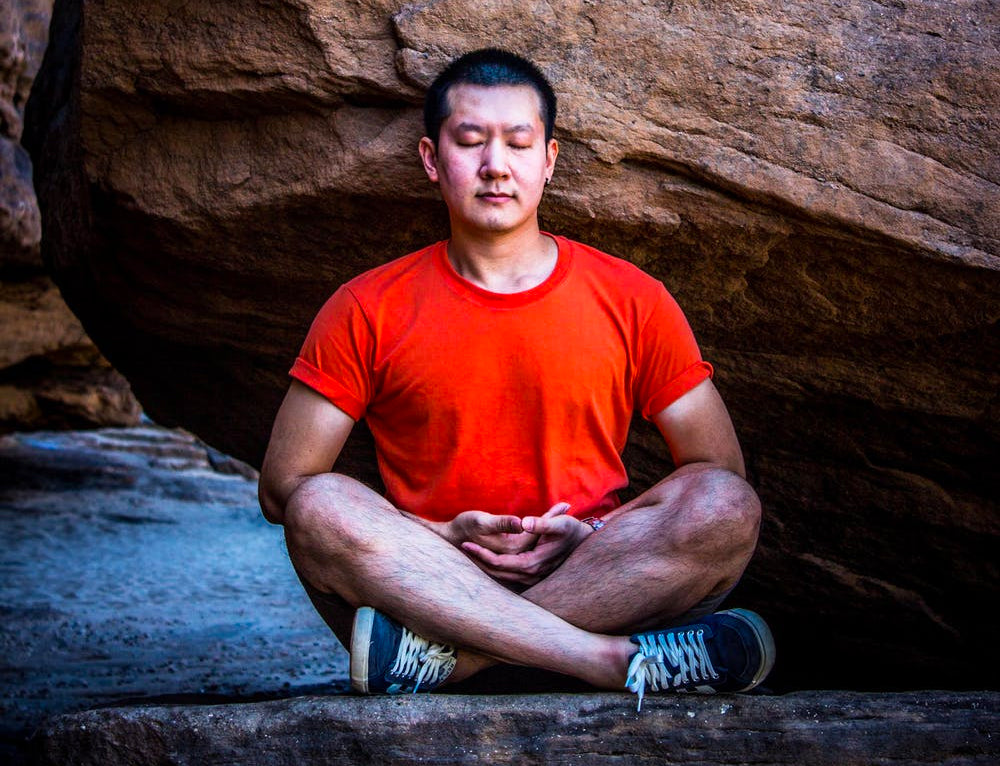Tips For Using Meditation to Cope with Anxiety & Stress

Tips For Using Meditation to Cope with Anxiety & Stress. Have you had your moment of quiet today? For many Americans, the answer is probably no. Here’s another question – have you felt anxious today? For many Americans, the answer is probably yes. Between work pressure, hectic schedules and drastically increased screen time, chances are the moments of calm and quiet are slim, and the moments of worry and stress are far too common than we would like to admit.
Sources define anxiety as the “The cognitive state related to the inability to control emotional responses to perceived threats.” Anxiety affects many people, and in varying degrees of intensity. We have all likely felt a bit of anxiety from time to time, this is not uncommon. However, for some – this feeling does not go away. When bouts of nervousness, fear or worry become persistent and start to impact your day-to-day life, it could be an anxiety disorder. Sources estimate 18 percent of Americans struggle with an anxiety disorder.
There are many treatment options available for those struggling with anxiety. One option that may be considered is meditation. Meditation is a mind-body practice that works to connect the brain with the physical body and behavior of the practitioner. It promotes finding a place of internal tranquility through stillness and quiet. Most often meditation is practiced in a comfortable seated position, however some forms of meditation may involve movement, such as silent walking or various types of yoga. Those with mobility issues should discuss best options with a trained meditation instructor and with the oversight of their medical provider.
Meditation can be practiced for any length of time, often with practitioners starting off with shorter sessions, and building to longer sessions as they become more seasoned. The practice can be incredibly challenging, especially at first, as practitioners work to stay centered amidst outside distractions, however this helps to develop the skill of staying calm despite any external chaos that may be happening around you. Thoughts often times become a pesky distraction during meditation as well, and herein lies the practice of letting go of attachment and judgment towards the chatter of the mind. Practitioners are encouraged to focus their attention on a word or phrase (sometimes referred to as a mantra), or the sensation of their breath, to stay centered while they are meditating.
Meditation is generally considered safe for healthy adults, with few known negative side effects. There are many possible benefits of meditation including a calmed mind and relaxed physical body, a heightened sense of awareness of emotional and physical reactions to thoughts and outside stressors, and an overall improved sense of well-being. A variety of studies have explored the impact that meditation can have on anxiety symptoms, and most results have demonstrated mild to moderate improvements over common anxiety indicators.
Although the jury may still be out on whether or not meditation can help alleviate anxiety disorders, the safety of the practice and the perceived benefits are generally positive and accessible for most people. Meditation may not replace more conventional treatment for anxiety disorders, however at the very least, a few moments of quiet self-reflection may be a nice addition to an otherwise hectic day.
Sources:
https://www.ncbi.nlm.nih.gov/pubmed/23615765
https://www.ncbi.nlm.nih.gov/pubmed/24395196
https://nccih.nih.gov/health/meditation/overview.htm
https://nccih.nih.gov/health/anxiety/at-a-glance
https://www.nimh.nih.gov/health/publications/generalized-anxiety-disorder-gad/index.shtml




